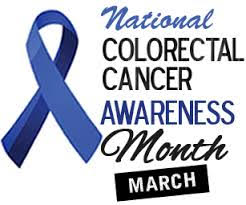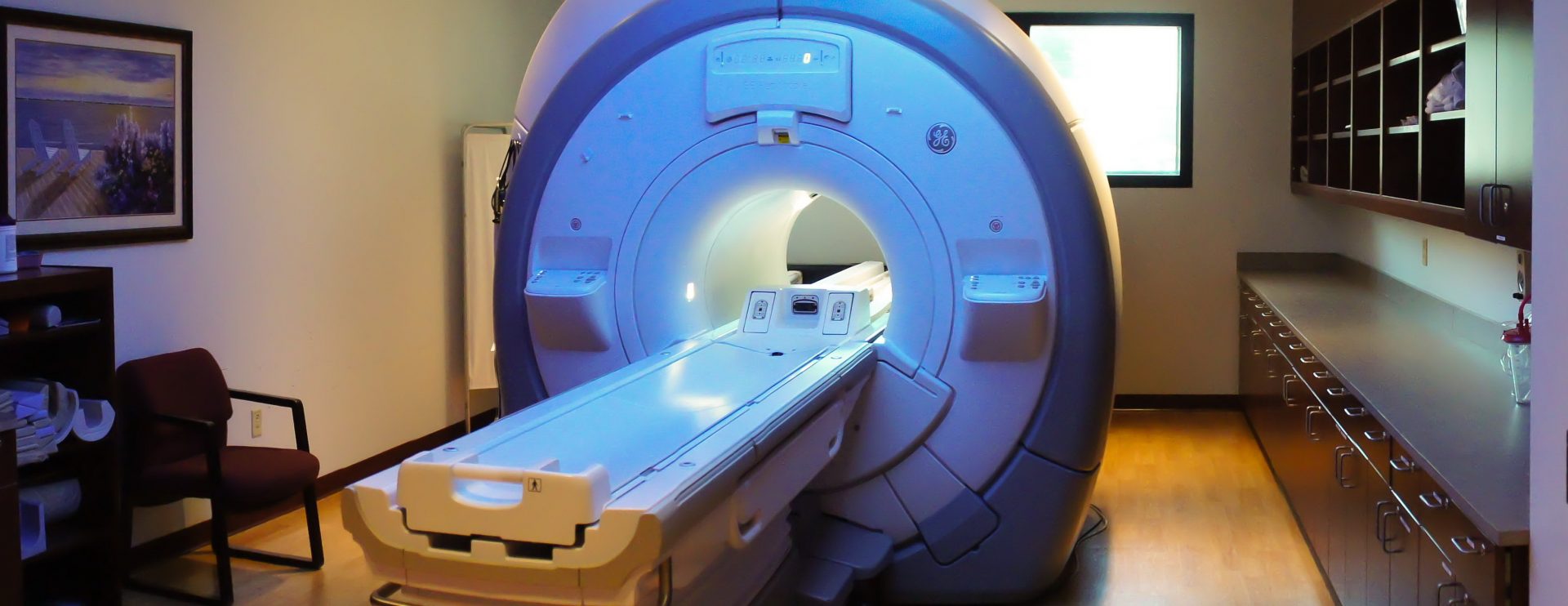 Colorectal Cancer Awareness Month is observed every year in March since the Prevent Cancer Foundation led the charge in 1999. The Foundation increased awareness with popular bracelets featuring the phrase “Preventable. Treatable. Beatable!” Colorectal cancer affects both men and women in nearly equal numbers and is the second leading cause of cancer deaths in the United States.
Colorectal Cancer Awareness Month is observed every year in March since the Prevent Cancer Foundation led the charge in 1999. The Foundation increased awareness with popular bracelets featuring the phrase “Preventable. Treatable. Beatable!” Colorectal cancer affects both men and women in nearly equal numbers and is the second leading cause of cancer deaths in the United States.
Colorectal cancer will be diagnosed in approximately 140,000 people this year and will be the cause of death for about 50,000 Americans. Colorectal cancer is cancer that begins in the colon or the rectum, with about 71% of cases arising from the colon and 29% from the rectum. Colorectal cancer describes either colon cancer, rectum cancer or both.
The lifetime risk of developing colon cancer is about 1 in 23 for both men and women, although this varies widely depending on risk factors. The good news is that when discovered early, this type of cancer is highly treatable.
Colorectal Risk Factors
The median age of people being diagnosed with colon cancer is 68 for men and 72 for women, while the median age of diagnoses with rectal cancer is 63 for both men and women. The incidence of diagnoses in people under the age of 50 is on the rise, however. With increased awareness, education and screening we can prevent this cancer and lower the number of cases and deaths across the U.S.
Incidents and mortality rates of colon cancer are higher in African Americans, about 20% more than diagnoses in whites from the period 2009-2013. Death rates are also increased in blacks by 40% more than death by colorectal cancer in whites. Your ethnicity and family history may put you at an increased risk for colorectal cancer.
Having a family history with a first degree relative such as a parent, child or sibling who has colorectal cancer increases your risk by two to three times more than those without any family history.
People with a history of developing polyps are also at an increased risk. Most colorectal cancers first develop as polyps, which is the term for abnormal growths inside the colon or rectum. Polyps may become cancerous if not removed.
Other risk factors include eating a diet high in red meats, smoking and a lack of physical activity.
Colorectal Cancer Screening
Talk to your doctor about screening methods and your individual risk factors including ethnicity, family history and lifestyle. The American Cancer Society recommends that adults without a family history begin colorectal screen at age 45. See more information on screening for colorectal cancer at Colorectal Cancer Alliance.
Screening tests that detect polyps and cancer include:
- CT colonography (virtual colonoscopy) recommended every 5 years
- Colonoscopy recommended every 10 years
- Double-contrast barium enema, every 5 years
- Flexible sigmoidoscopy. every 5 years
The following tests are used to mainly detect cancer:
- Guaiac-based fecal occult blood test (gFOBT), each year
- Fecal immunochemical test (FIT), each year
- Stool DNA every three years
Colorectal Cancer Survival Rates
The survival rates for colorectal cancer has been steadily increasing since the mid-1980’s, due in large part to an increase in screening and awareness. When polyps are removed in the early stages this is much easier to treat. Improvements in treatment options have also increased the survival rates of colorectal cancer. There are currently more than one million colorectal cancer survivors alive in the U.S.
Survival rates depend on the stage of colorectal cancer, which is defined here by the Colorectal Cancer Alliance, with the following survival rates:
- 90% when found at the local stage
- 71% when found at the regional stage
- 14% when found in the distant stage
As you can see, early screening and treatment is key to beating colorectal cancer. Talk to your doctor about the right screening method for you. About 60% of colorectal cancer deaths can be prevented with regular screenings. We urge you to talk to your doctor about screening and urge your loved ones to do the same.
Greater Waterbury Imaging Center urges you to spread the word about Colorectal Cancer Awareness Month. Remind your friends and family that screening saves lives and talk to your doctor about the right screening test for you. Contact us for all your MR medical imaging needs.

